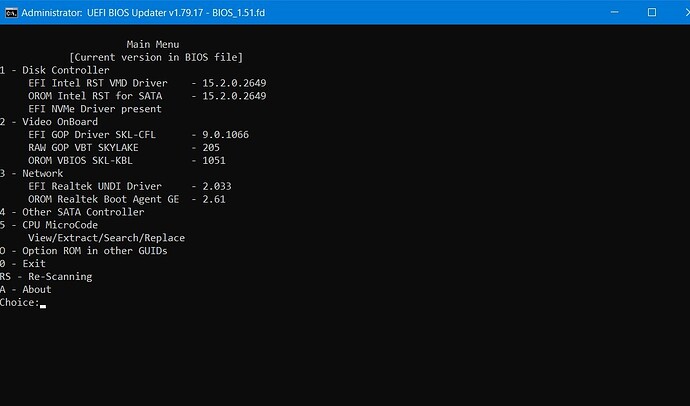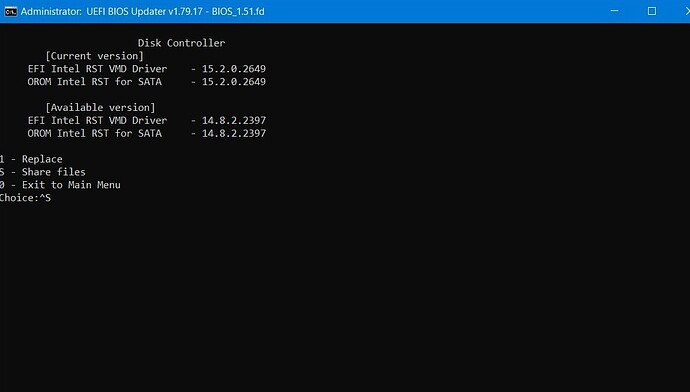Hello, I have a problem and I would like someone to explain it to me, I would like to update the efi raid driver and my current version is:
EFI Intel RST VMD Driver - 15.2.0.2649
OROM Intel RST for SATA - 15.2.0.2649
I checked it with the UEFI BIOS updater and after entering option 1 I have something like this
The question is why do we update the EFI Driver from Intel OROM in this module or only the EFI driver itself and why does it show me a version that is weaker than I have?
Another question is which version should be updated for Kaby Lake (200 series)
My laptop is Acer Aspire F5-573G
Intel i5-7200U
BIOS v1.51
Thank you in advance

